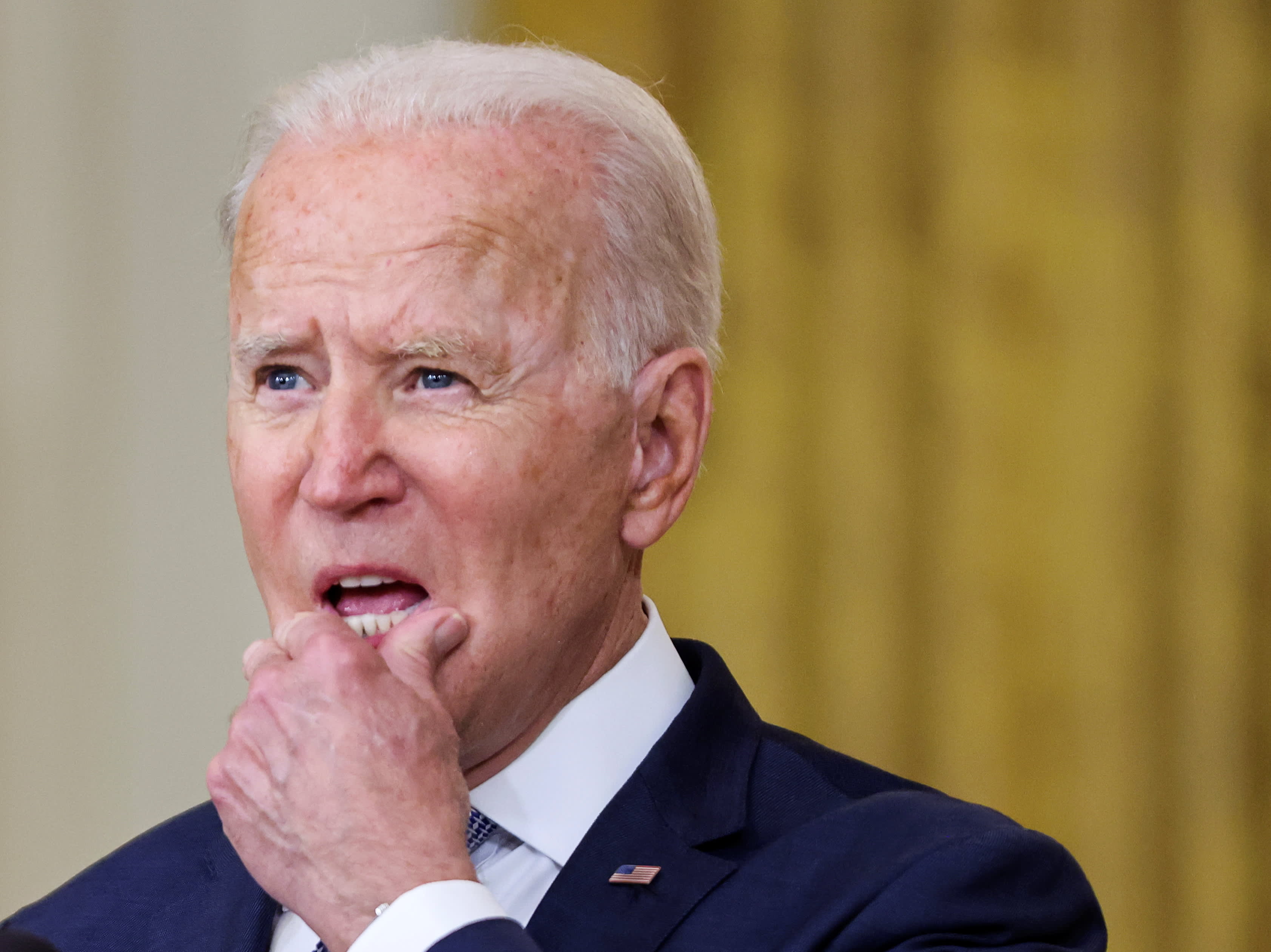
U.S. President Joe Biden discusses his ‘Build Back Better’ agenda and administration efforts to “lower prescription drug prices,” in the East Room at the White House in Washington, U.S., August 12, 2021.
Evelyn Hockstein | REUTERS
WASHINGTON – President Joe Biden is slated to address the nation from the White House Monday afternoon after the Taliban seized the presidential palace in Afghanistan’s capital Kabul over the weekend, a dramatic development that marks the apparent end to a 20-year U.S. nation-building project launched after the Sept. 11, 2001 terrorist attacks.
Biden’s remarks, scheduled for 3:45 p.m. ET, will be his first since the Taliban ousted the Afghan national government on Sunday. The president’s decision to address the nation comes amid mounting criticism of his administration’s handling of the situation and calls for him to break his silence.
Despite being vastly outnumbered by the Afghan military, which has long been assisted by U.S. and NATO coalition forces, the Taliban carried out a succession of shocking battlefield gains in recent weeks.
As the Taliban inched closer to the capital over the weekend, Afghan President Ashraf Ghani fled the country and Western nations rushed to evacuate embassies amid a deteriorating security situation.
Taliban fighters sit over a vehicle on a street in Laghman province on August 15, 2021.
AFP | Getty Images
White House National Security Advisor Jake Sullivan, in an interview with NBC on Monday morning, admitted that the speed of the Taliban takeover had taken the administration by surprise, but said U.S. forces had been prepositioned in the region to respond in the event of a rapid collapse.
“It is certainly the case that the speed with which cities fell was much greater than anyone anticipated, including the Afghans, including many of the analysts who looked hard at this problem,” Sullivan said.
Biden ordered the deployment of approximately 5,000 U.S. troops to Kabul to evacuate U.S. embassy staff throughout the weekend. The State Department confirmed Sunday evening that all U.S. diplomatic staff at the embassy in Kabul had been safely transported to Kabul’s international airport.
“All Embassy personnel are located on the premises of Hamid Karzai International Airport whose perimeter is secured by the U.S. military,” State Department spokesman Ned Price said.
U.S. Embassy personnel on the ground were instructed to destroy sensitive information material ahead of their departure.
Thousands of Afghans swarmed the tarmac at the airport, desperate to escape a country now completely overrun by the Taliban.
Afghan people sit as they wait to leave the Kabul airport in Kabul on August 16, 2021, after a stunningly swift end to Afghanistan’s 20-year war, as thousands of people mobbed the city’s airport trying to flee the group’s feared hardline brand of Islamist rule.
Wakil Kohsar | AFP | Getty Images
Two U.S. defense officials confirmed to NBC News that the Taliban seized Bagram Air Base on Sunday, a development that comes less than two months after the U.S. military handed over the once-stalwart airbase to the Afghan National Security and Defense Force.
The Taliban began emptying out Parwan prison there, which has an estimated 5,000 to 7,000 prisoners, including hardened Taliban and al Qaeda fighters, according to the officials who spoke on the condition of anonymity.
In 2012, at its peak, Bagram saw more than 100,000 U.S. troops pass through. It was the largest U.S. military installation in Afghanistan.
In April, Biden ordered the Pentagon to withdraw U.S. troops from Afghanistan by Sept. 11, a decision he said was made in lockstep with NATO coalition forces.
Last week, Biden told reporters at the White House that he did not regret his decision to withdraw U.S. forces from Afghanistan, effectively ending America’s longest war.
“Look, we spent over a trillion dollars over 20 years, we trained and equipped with modern equipment over 300,000 Afghan forces,” Biden said on August 10. “Afghan leaders have to come together,” the president added.
Biden, in a statement Saturday amid the deteriorating security situation but before the Afghan government’s collapse, remained steadfast in his position.
“One more year, or five more years, of U.S. military presence would not have made a difference if the Afghan military cannot or will not hold its own country,” the president said. “And an endless American presence in the middle of another country’s civil conflict was not acceptable to me.”




